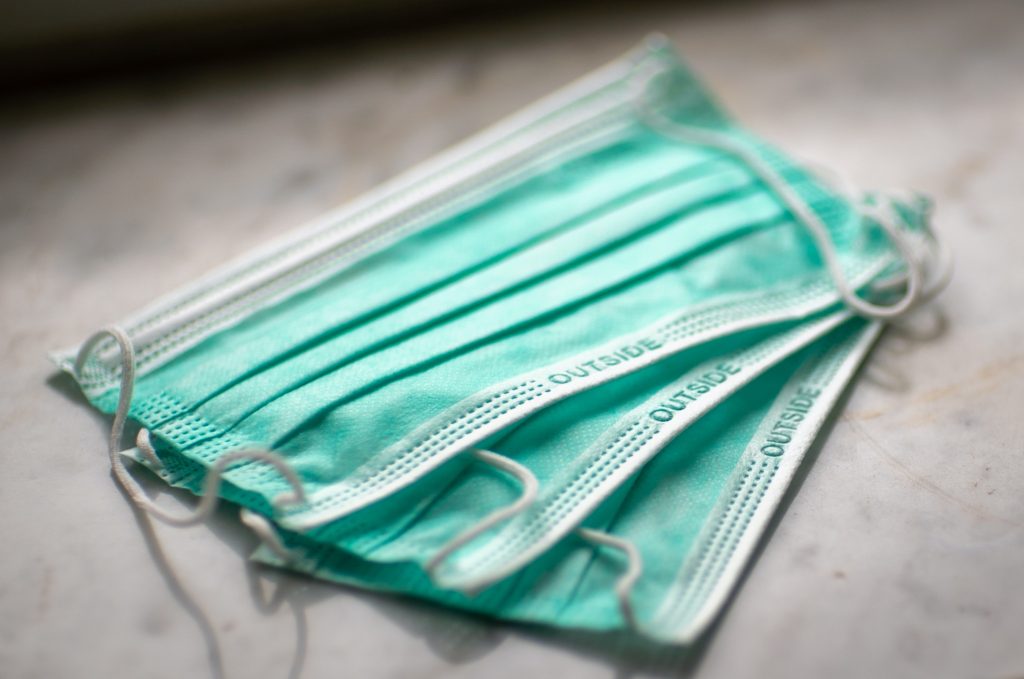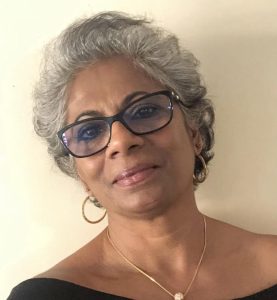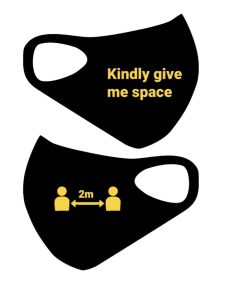
Earlier in the pandemic, around 5% of Northwest Londoners were considered clinically extremely vulnerable and advised to ‘shield’. Although the shielding programme has ended, with the vaccination programme helping to lower people’s risk of becoming seriously ill, many are still avoiding social contact to continue to protect themselves, particularly as new variants continue to circulate.
Although all legal restrictions have ended in the UK, protective measures such as face mask wearing are still considered important to help curb the spread of COVID-19 and protect vulnerable groups. Charities have urged the population to continue to perform these behaviours to keep those at risk safe, while also allowing them to reconnect with society.

Sandra Jayacodi, a member of the charity Open Age and a member of Imperial Global Health Innovation (IGHI) Research Partners Group, wanted to help by creating a way to alert those around her to practise social distancing. She approached Imperial to co-develop a protective face mask for clinically vulnerable people that would signal to others to keep their distance.
Sandra, and a steering group of four members from Open Age, partnered with researchers and designers from Imperial IGHI to co-design a face mask for those most at risk of serious illness from COVID-19. The mask they created has a slogan, ‘Kindly Give Me Space’ and an image to alert others around them to keep their distance. 196 masks were then sent out to people in Northwest London in the hope that it would make them feel safer leaving their homes and people around them would continue to keep their distance. IGHI is now analysing survey data collected about the mask’s effectiveness in encouraging people to keep their distance, and what wearers thought about them.
We spoke to Sandra to hear about how she came up with the idea and her experiences of working on this project.
Creating the co-designed face mask
Tell us a bit about this face mask project and how it came about.
In the early days of the COVID-19 pandemic everyone was talking about social distancing and about those who were more vulnerable. Even though advice said to social distance, whenever I went to the supermarket, I’d find people still standing close to me. I fall under the vulnerable category, so I didn’t feel safe.
Other organisations had the idea of lanyards that said, ‘give me space’ however a lanyard is not something easily seen. I thought about creating something with a dual purpose, something that tells people ‘Give Me Space’ but also protects people as well. That’s when I had the idea of creating a mask specially designed for vulnerable people, because they need better protection than many high street masks offer. If they have to go out, they should feel safe.
As a member of IGHI’s Research Partners Group I believed this was patient safety issue, so I asked Anna Lawrence-Jones [Patient and Public Involvement and Engagement Lead at IGHI] to help me create the mask along with Open Age, the charity I’m a member of. We then got funding from the National Lottery to develop the masks which was exciting because they must have seen a need for it too.
What was the process behind the design of the face mask?
We formed a group with members of Open Age to discuss the design. We chose the colours and a logo and worked as a team to come up with this. There were a few different designs we went through until everyone unanimously agreed to a final prototype.
Clarissa Gardner [Research Assistant, IGHI] produced rough designs during our meetings so we could see how the mask looked. We deliberated a bit between the members between the slogan ‘please give us space’ or ‘give a space’ but overall, the design was not one single person’s idea. If someone in the group made a suggestion, another made comments, and then we all came together and agreed on it.

What makes this face mask different from others?
This is a washable face mask so, you can wear it more than once, cost saving, and it also stands out from other masks. If other people notice the messaging, then the hope is that they would stay away. They would notice that I’m vulnerable and that I want people to take me seriously. That is the key message – take me seriously.
As a vulnerable person, I don’t want to stay indoors all the time. I want to go out too. So, if I go out, give me space. This is so important now that we are learning to live with the virus without restrictions. Both my parents are also vulnerable, so it is important for them that people continue to give them space. If they got COVID it would be extremely hard for them to recover.
What would you do better in the future?
We didn’t have the opportunity to do publicity or inform the public so that they would notice and understand the purpose of the masks, and this is where I think we could have done better.
There were also some concerns from people in the team who fell within the vulnerable category that they didn’t want others to pick on them, which is fair. So, it’s up to the individual if they want to wear the mask or not. The choice is yours.
Do you think there should be plans for the masks to be more widely implemented or more publicity around mask wearing?
Wearing masks is still so important. Most people aren’t wearing masks anymore and it is now up to individuals whether they self-isolate or not from COVID-19. Many people are also falling ill quite badly from the virus and can’t go to work so it is affecting people economically as well. I personally believe that people should still be advised to wear masks, especially if they are vulnerable or around vulnerable people.
Did you learn anything through the process and what would you like to tell others?
If you have an idea, do not hesitate to share that idea with someone who can help you look into it and make it action. What makes me feel incredibly happy is that someone listened to my idea and was willing to give it a go. Let people hear your ideas and find a place to share them.